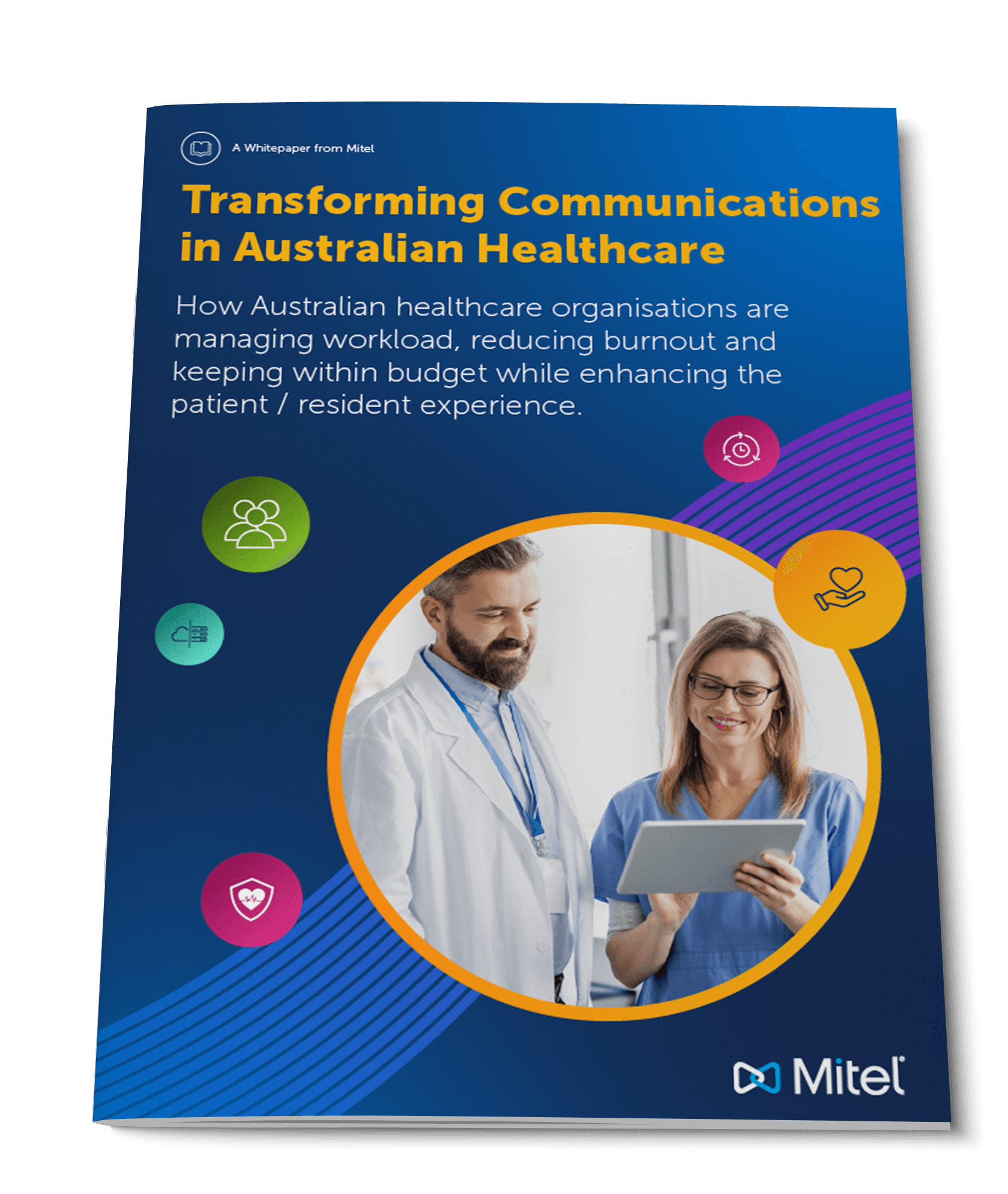You’ve attended the conferences. You’ve seen the demos. Artificial intelligence promises to revolutionise healthcare, automated diagnostics, predictive analytics, intelligent workflow management. Yet after two years of pilot programs and proof-of-concepts, your organisation is struggling to move beyond limited trials to meaningful, production-ready healthcare AI implementation.
The problem isn’t your technology choices or your clinical staff’s capabilities. It’s that AI success in healthcare isn’t determined by algorithmic sophistication, it’s determined by how well these tools integrate with your existing communication workflows and clinical decision-making processes.
The Integration Reality That Vendors Don’t Discuss
Your current AI initiatives likely exist in isolation. The diagnostic algorithm runs separately from your EMR system. The predictive analytics dashboard operates independently from your clinical communication platforms. Your AI transcription service works in its own silo, disconnected from patient care workflows.
This fragmentation means your clinical staff are switching between AI-powered tools and traditional systems throughout their shifts, manually transferring information, and struggling to incorporate AI insights into patient care decisions. The technology works perfectly in controlled environments, but fails to integrate seamlessly into the complex reality of healthcare delivery.
Consider your morning clinical rounds. Your AI system has identified three patients at high risk for deterioration overnight. But this critical information sits in a separate dashboard that busy clinicians must remember to check, rather than being automatically integrated into handoff communications, nursing workflows, or care team notifications.
Why Communication Integration Determines AI Success
The most sophisticated AI algorithms become useless if their insights can’t reach the right clinical staff at the right time through the right communication channels. Your healthcare AI implementation succeeds or fails based on how effectively it connects with human decision-making processes, not on its technical capabilities.
Successful AI integration requires seamless communication workflows that connect algorithmic insights with clinical actions. When your AI system detects concerning patient data patterns, this information must automatically trigger appropriate clinical notifications, integrate with existing care team communication protocols, and connect with established escalation procedures.
Your nursing staff need AI insights delivered through the communication systems they already use for patient care coordination. Your physicians require AI recommendations integrated into their existing clinical documentation and communication workflows. Your care teams need AI-powered alerts that work within established handoff and shift change procedures.
The technology becomes valuable only when it augments existing human expertise rather than creating additional administrative burdens or workflow disruptions.
Emerging AI Integration Opportunities for Healthcare Communication
Healthcare organisations are exploring AI communication applications that could enhance clinical workflows when integrated thoughtfully with existing systems.
AI-powered voice translation transforms patient care when integrated directly with Mitel’s telephony systems, enabling real-time language support during critical patient calls, family communications, and emergency situations. Rather than requiring separate translation services, AI enhances existing communication workflows while ensuring clinical staff can communicate effectively with diverse patient populations.
Intelligent call routing with AI succeeds when it automatically connects patients to appropriate clinical specialists based on natural language understanding of their concerns. Instead of forcing patients through complex menu systems, AI-enhanced routing integrates with existing clinical scheduling and escalation workflows, ensuring urgent medical calls reach the right clinicians immediately.
Voice AI for patient engagement integrates with Mitel’s contact centre solutions to handle routine appointment scheduling, medication reminders, and follow-up calls, while seamlessly transferring complex medical queries to appropriate clinical staff. The AI enhances patient communication capabilities while working within existing healthcare communication infrastructures rather than replacing human clinical judgment.
AI-driven sentiment analysis works effectively when integrated with Mitel’s communication recording and monitoring systems, automatically flagging patient or family calls that indicate distress, confusion, or escalating concerns, enabling proactive clinical intervention through established care team notification protocols.

The Australian Healthcare AI Reality Check
Despite considerable investment in AI pilot programs across Australian healthcare organisations, production rollouts remain limited. The challenge isn’t technical, it’s operational. Healthcare AI implementation fails when organisations focus primarily on algorithmic capabilities while neglecting integration with existing clinical communication workflows.
Your clinical staff are already managing complex communication demands across multiple systems; EMRs, pathology portals, imaging systems, scheduling platforms, and family communication channels. Adding AI tools that operate independently from these established workflows creates additional complexity rather than operational efficiency.
Successful healthcare AI implementation requires technology that enhances rather than complicates existing communication processes. Your AI initiatives should reduce administrative burden on clinical staff while improving their ability to make informed patient care decisions.
Building AI Integration That Supports Clinical Workflows
Successful healthcare AI implementation strategies prioritise communication integration from project inception. This means selecting AI tools that connect seamlessly with your existing clinical communication infrastructure rather than requiring separate systems and workflows.
Start with AI applications that enhance communication processes you already have in place. AI-powered appointment scheduling that integrates with existing patient communication channels. Clinical documentation AI that automatically updates care team members through established notification systems. Predictive analytics that trigger existing escalation protocols rather than creating new alerting mechanisms.
Focus on AI implementations that augment human clinical expertise rather than attempting to replace established decision-making processes. Your clinical staff possess irreplaceable knowledge about patient care, family dynamics, and care coordination that AI cannot replicate. The technology should enhance their capabilities while preserving their central role in patient care decisions.
Ensure your AI tools integrate with mobile communication platforms that clinical staff already use for care coordination. Healthcare delivery increasingly depends on mobile workflows, and AI systems that require desktop access or separate applications will struggle to achieve adoption in fast-paced clinical environments.
The Path to Meaningful AI Integration
The question isn’t whether AI will transform healthcare, it’s whether your organisation will implement AI in ways that genuinely support clinical staff and improve patient outcomes.
Start with AI applications that solve real communication challenges your clinical staff face daily. Build on these successes by expanding to more sophisticated AI capabilities while maintaining seamless integration with established clinical communication processes.
The future of healthcare AI isn’t about replacing human expertise or technology; it’s about integrating technology that amplifies clinical capabilities through intelligent communication integration.
Ready to implement AI that actually works within your clinical workflows? Learn how communication-integrated AI solutions can enhance rather than complicate your healthcare delivery processes.
Download our comprehensive whitepaper: “Transforming Communications in Australian Healthcare”.
Learn about:
- AI integration frameworks that enhance rather than complicate existing clinical workflows
- Communication-first AI strategies for successful healthcare technology deployment
- Australian healthcare case studies showing measurable improvements
Contact Mitel’s healthcare AI specialists to discuss how communication-integrated artificial intelligence can enhance your clinical workflows while supporting staff and improving patient outcomes. Call us today on +61 2 9023 9500.






